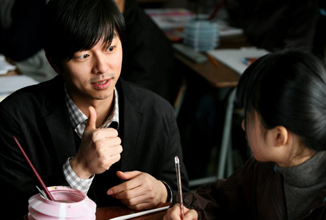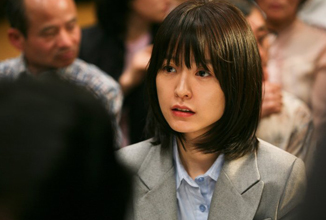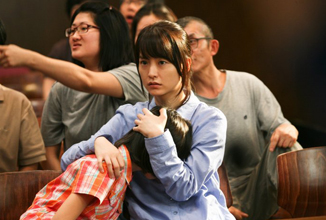"The best and most beautiful things in the world cannot be seen or even touched. They must be felt within the heart."
Synopsis:
In-ho (Gong Yoo) is an art teacher who takes up a position at a school for the deaf and hearing impaired in Mu-jin, following a recommendation from his former lecturer. On attempting to establish a rapport with his new students, he finds them deeply introverted and seemingly traumatised, but initially assumes that they are non-responsive simply because of their disabilities. However, as he slowly begins to get to know the children it becomes increasingly clear that something much more sinister is taking place in the school and before long he comes to the shocking realisation that the children are being physically and sexually abused by several of the other teachers.
Utterly abhorred, he enlists the help of Yoo-jin (Jeong Yu-mi), a young woman who works at the Human Rights Centre, and together they resolve to save the children and bring those responsible to justice, but they are soon to discover that their desperate endeavours bring with them far reaching consequences of their own...
Review:
Any film dealing with the subject of abuse - whether it be physical, mental, sexual, or all of the above - is likely to be a fairly hard-hitting affair. If the abuses detailed involve innocent children, all the more so.
However, the fact that not only does The Crucible centre around the story of deaf and utterly helpless kids abused in boarding school by the very teachers entrusted with their care, but also that its plot is based on real-life factual events means the description "hard-hitting" doesn't even come close to conveying just how brutal, painful and ultimately heartbreaking a film it really is.
Make no mistake, The Crucible isn't for the faint-hearted, and even those who are fairly used to bleak Korean drama will likely find themselves repeatedly asking "How could this ever have been allowed to happen" incredulously under their breath, shaking their heads and wishing it was nothing more than a fictional tale.
There are only a few instances in The Crucible where the atrocities committed against the children are actually shown (mainly in flashback sequences) but that decision makes them all the more shocking, if that's possible, and even those scenes framed from an angle (thankfully) negating any need for graphic visual depictions of the abuse itself - such as the headmaster shown at the door of a cubicle in the ladies' restroom abusing his innocent victim who is hidden from view inside - are, each and every one, painfully difficult and wrenchingly heartbreaking to watch.
The film's narrative is split into two main segments - In-oh's gradual discovery of what the children are being subjected to playing as a dramatic thriller, with the eventual trial of (most of) the perpetrators being courtroom drama - and these fit together well, both in their own right and when linked by flashback sequences, to keep viewers utterly gripped throughout. The introduction of each of the main characters is also handled well, deftly and subtly foreshadowing their respective places in eventual proceedings even before the main story gets fully underway:
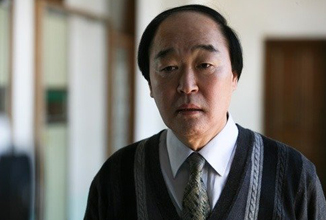 |
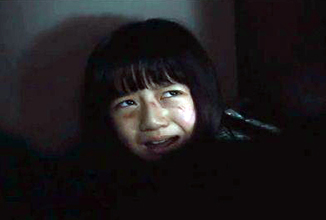 |
When we are first introduced to In-oh, we find a quiet, rather shy, individual desperately struggling to move his life forward. His daughter is seriously ill, her mother is dead and he wouldn't even be able to take up his new teaching position without his own mother's help - both in caring for his child and later providing the money he is required to pay to the school's Development Fund. The very first scene showing him driving to Mu-jin school while his mother berates him on the phone accents this perfectly, and his subsequent accidental killing of a deer on the road is perfectly juxtaposed with the suicide of a young boy on nearby railway tracks to deftly point towards the discoveries he is soon to make at Mu-jin school.
His early run in with human rights worker Yoo-jin introduces her as a feisty lady who stands up for what she believes is right regardless of what others may think of her as a result, and though her personality is almost the total opposite of In-oh's, they both clearly stand as good, honest people from the very outset of their encounters.
Massively contrasted with this are the characters of the adults In-oh finds at Mu-jin school. While each of them is, outwardly, deeply polite and even reserved to an extent - repeatedly referencing the good that they've done for the community and the fine, upstanding individuals those involved with the school are - they come across as noticeably fake (as almost anyone trying to cover something up would) and though In-oh is initially unsure of whether his apprehensions are just caused by feeling out of place in new surroundings or by his gut instinct alerting him to something deeper, as soon as he gains the trust of one of the children his worst fears are resolutely realised.
When he first arrived at Mu-jin school, In-oh was desperate not to do anything to jeopardise his newfound position but he soon begins to realise that in order to save the children and help bring those responsible for their abuse to justice, he must somehow find the strength to do exactly that.
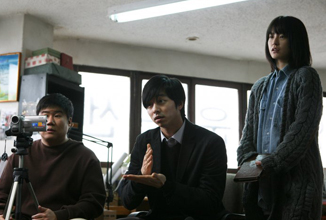 |
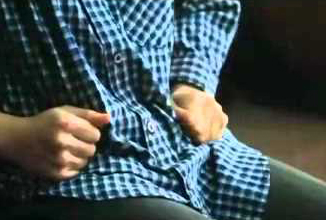 |
Being based on a true story that literally shocked the nation - the film ultimately led to a change in the law in Korea to prevent anything similar from happening in the future - The Crucible's narrative naturally allows for underlying references to corruption (in business, the police, the justice system and also society as a whole); to "Old Boys' networks" (if you will); to society's lack of understanding with regard to the disabled; and even to the ease with which lack of empathy and caring can be hidden by bureaucracy and red tape, and while these themes are largely stated rather than dissected, that's really all that's required, thereby being allowed to say their piece without getting in the way of the most important aspects of the film - namely the plight of these innocent children and the need to see justice done.
In classic Korean cinema style, The Crucible moves somewhat into melodrama territory as the conclusion approaches, but in this case that actually works in its favour: For those of you who may not be aware, the extent of the real-life story covered by the narrative up until shortly after the end of the court case didn't have what could, in any way, be described as a happy ending and, as such, the melodramatic elements (which are never forced or overstated) serve to bring a poignant ending to a painful story.
There is a short coda section added to the very end of The Crucible that attempts to lighten the load and, to an extent, bring that aforementioned happy ending and while some might say it is somewhat unnecessary its inclusion is totally understandable, especially considering the darkness of the rest of the film.
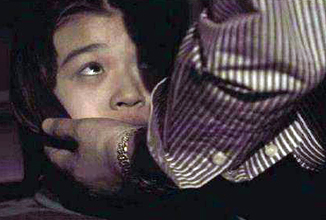 |
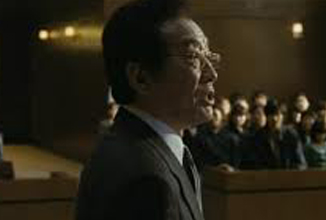 |
Ultimately, The Crucible does a great deal right but by far its most impressive element can be found in the performances of the children, and while the majority of the adult actors provide accomplished portrayals throughout, not a single one of them can hold a candle to the younger cast members in any respect. I've written a fair amount (in numerous reviews) about the incredibly high quality of performances given by children in Korean films and those found in The Crucible underline those comments repeatedly. The depth of emotion they bring to their characters is frankly incredible and their performances are both beautifully nuanced and utterly note-perfect.
While we're on the subject of the cast, it does have to be said that the one characterisation that lets the film down is that of 'dorm matron' Ja-ae. Whether actress Kim Joo-ryeong was specifically instructed to play the character in such an overly 'evil' way or is simply overplaying the part isn't entirely clear, but overplay it she does... to the nth degree, ultimately making her character seem almost a personification of the Wicked Witch of the West, rather than the calculating, conniving, vindictive and twisted individual she actually is.
A final, albeit fairly slight, niggle comes in the subplot involving In-oh's sick daughter. In the early stages of the film, her condition is referenced several times including one fairly substantial scene, leading viewers to assume that her story arc is going to play an important part in later proceedings. However, from about the halfway point onwards almost all mention of her vanishes, save for a passing comment from a lawyer trying to bribe In-oh and saying "I've heard your daughter is very ill". While it's understandable that director Hwang Dong-hyeok wanted to flesh out the character of In-oh by detailing his home and family life, it’s really rather a shame that his daughter's story wasn't either followed through to a natural conclusion; contrasted with the outcome for the abused school children; or alternatively jettisoned completely.
That said, however, neither this unfinished subplot nor the aforementioned issues with the characterisation of Ja-ae ultimately detract from the film's power overall and in spite of them The Crucible remains shockingly and grippingly unmissable.
Main Cast:
Gong Yoo, Jeong Yu-mi, Kim Hyeon-soo, Jeong In-seo, Jang Gwang
Director: Hwang Dong-hyeok
Summary:
Based on the true story of innocent children physically and sexually abused at a school for the deaf, The Crucible is a brutal, visceral and ultimately heartbreaking tale serving as proof (if proof were needed) that real life can be far more cruel than fiction.
|



